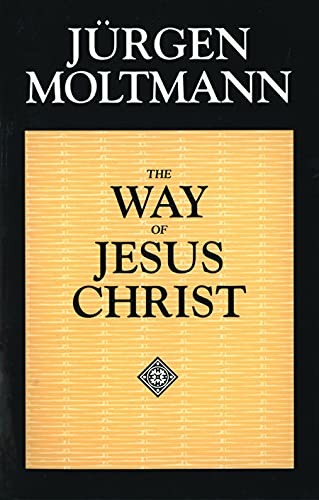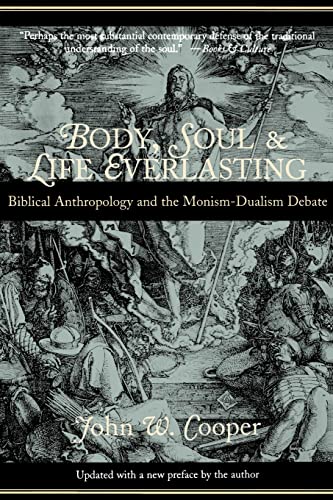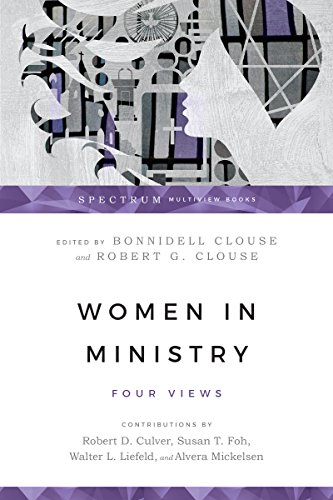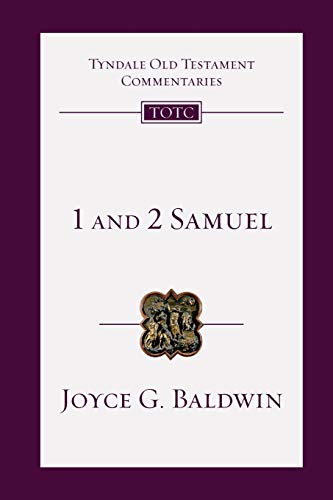Volume 17 - Issue 2
Keith Ward: Taking leave of God incarnate—a review article
By Rob CookThe publication of Keith Ward’s latest book coincides with his commencement as Regius Professor of Divinity in the University of Oxford. It seems timely, therefore, to examine this book in the light of his work over the past ten years or so in order to discover what sort of theologian holds this prestigious and influential chair. What we find, in fact, is that A Vision to Pursue marks a radical departure from his earlier writings.
Throughout the 1980s Ward gained the reputation of being a bold and articulate defender of the faith. In Holding Fast to God (1982), for example, he sought to refute point by point the sceptical arguments of Don Cupitt as presented in Taking Leave of God. Significantly, Ward’s book is praised in the foreword by the evangelical statesman, Sir Norman Anderson. Although he would never call himself an evangelical, Ward was a ‘mere Christian’ in the Lewisian sense of adhering to the creeds without feeling the need to demythologize them in a liberal direction. In fact he identified himself with the C.S. Lewis Centre, contributing a chapter on miracle to the book Different Gospels (1988) sponsored by that group. All through the decade we found Ward popping up on our TV screens or appearing in print, supporting the idea of a loving God who draws us into an eternal relationship with himself, or the historicity of the virgin birth, or the resurrection of Jesus. He was there too in Thought For the Day, and many of us were profoundly helped by his radio series The Turn of the Tidewhich demonstrated that experts in several different disciplines were again taking the Christian worldview seriously. The Church Times’ appellation of Ward as ‘Champion of the Faith’ on the publication of his The living God (1984) seemed eminently justified. But now comes the sudden shock of A Vision to Pursue in which he expresses profound doubts about the trustworthiness of Scripture, apparent agnosticism about the virgin birth and Christ’s bodily resurrection, and disbelief regarding the doctrine of incarnation. What can have happened here?
To attempt to answer this question it might be helpful first to note areas where Ward has always distanced himself from positions held by most evangelicals. He has consistently rejected the doctrine of scriptural infallibility, preferring to view the Bible as the product of the interaction between human speculation and divine prompting. Consequently he sees the Bible as presenting a chequered picture of base human teaching (e.g. the idea that God might order genocide) and divine wisdom.
Inspiration is the guidance of God in raising the minds of those involved in this process to deeper insights and more creative adaptations, so that a whole work is completed which will be able to form a sort of mould or matrix for shaping the developing life of the tradition which will be built upon it (1984; p. 92).
Nevertheless, in spite of his theoretical reservations, Ward has tended in practice to approach Scripture with trust, attempting to defend what he finds there. For example, he marshals Professors Morna Hooker and Graham Stanton in support of his positive but mediating position on the historicity of the gospels: ‘we neither have to take as the literal truth every word ascribed to Jesus, nor reject all of them as legendary, but … we can get a clear, if impressionist picture of Jesus’ (The Turn of the Tide 1986; p. 101).
Concerning the Trinity he has always been a modalist, rejecting the view that God has three centres of consciousness which he mockingly described as ‘an everlasting committee meeting—a man, a boy and a mysterious bird, locked for ever in mutual flattery’ (1986; p. 127).
Further, the notion of substitutionary atonement, which he blames on Anselm, has always been morally repugnant to him: ‘we have the idea of sin requiring retributive punishment, of a bloody death being able to pay the required price, and of the innocent being able to suffer in place of the guilty—a fundamental perversion of justice if ever there was one’ (1984; p. 115).
There have also been developments in his thinking throughout the decade. For example he has moved from a position of hell as ‘annihilation or total exclusion from the community’ (Rational Theology and the Creativity of God (1982), p. 202), to what seems to be a tentative espousal of universalism implicit in Divine Action (1990). More significantly for this article, he has shifted in his Christology but not this time in a liberal direction. While his earlier works had a worryingly adoptionist ring (1984; ch. 9) which was in line with his modalistic trinitarianism, by 1990 he was ready to defend a robust incarnational Christology, for although Jesus ‘shares our nature … he is not, and could never be, a distinct and separated soul’ (1990; p. 219). In other words, he contended that the subject or soul of Christ is divine and not human; the one who has a human nature is none other than God himself. At this time, a high Christology also pervaded Ward’s approach to the question of salvation in other religions. While he believed there must be a genuine offer of salvation for all humanity, he insisted that the offer comes through Jesus who is ‘God’s definitive self-disclosure’ (1990; p. 196), which is in line with what he had expressed previously: ‘After death, all will come to know by whom they have been saved; and they will only be saved as and when they come to know [Jesus] as Lord and Saviour’ (Holding Fast 1982; p. 165).
But now only one year after Divine Action we read that Jesus cannot be ‘a fleshly envelope of the divine mind’ (1991; p. 216) for he is merely ‘a human being in and through whom God acts’ (p. viii). And as for the doctrine of his ascension and glorification, ‘That the fifteen-billion-light-year-large … cosmos should be thought to be fulfilled in one human youth, sitting on a throne and surrounded by a chorus of doleful white-robed patriarchs, is just too childish to contemplate seriously’ (p. 84). This watered-down Christology enables Ward to be completely egalitarian towards other faiths, for ‘Once one begins to speak of incarnation as God acting in and through Jesus, it is not long before one might see God acting in and through Torah, Sharia, and Guru Nanak as well’ (pp. 123–124). Within a year Ward has moved from a trusting approach to scriptural revelation to a radically sceptical one (e.g. the gospels ‘are best seen as the first written expressions of a form of understanding and response to God which originated in the historically irrecoverable life of Jesus’, p. 34), from a truly incarnational Christology to a militantly adoptionist one, and from an inclusivist view of other religions to a radically pluralist one. Again we ask: how can this be? What can have happened here?
Ward does not leave us guessing. Although he is convinced that the concept of incarnation can be defended conceptually, as indeed he attempted to do in Divine Action, he now sees no reason to suppose that it ever happened in history since not only is the historical Jesus irrecoverable through the layers of tradition, but also the gospel records portray a fallible man who made mistakes, and error is incompatible with deity. The alleged mistake that Ward capitalizes on is Jesus’ prediction found in Matthew 24:34 that ‘this generation will not pass away till all these things [eschatological events leading up to the Second Coming] take place’ (1991; p. 17). Later in the book he adds the mistake Jesus makes in attributing some illnesses to demon possession (p. 118). Over the page he reapplies his argument to the Bible itself: we cannot accept the teachings of a book which insists on such unacceptable notions as complete divine foreknowledge (p. 120). (This point is an interesting reversal of his earlier position which still rejected absolute foreknowledge (on philosophical grounds) but was at pains to demonstrate scriptural support for his position: 1982; p. 131.)
Once the incarnation has been dispensed with, the main stumbling block for inter-faith dialogue has been eradicated and Ward is very sensitive of the damage that has resulted from animosity between religions. He has also become more and more impressed by the profound similarity between aspects of teaching within the various faiths as was explored in his Images of Eternity (1987) which compared the concepts of God in five different religious traditions. Perhaps his 1989 lecture tour in India deepened this conviction. Although there are aspects of Christianity which still appeal to him, such as its stress on God’s righteousness and divine involvement in history, Ward seems to be experiencing the magnetism of Eastern thought. For example, his description of the troubled world as ‘bound by desire and despair’ (p. 33) seems more informed by the Buddhist notion of dukkha than by Christian theology, and his description of religion as ‘a complex of stories, beliefs, practices and ideals which encourage a turning-away from selfishness by relating individuals to a supreme objective value which is their ultimate goal’ (p. 188) significantly omits any reference to forgiveness or grace or personal relationship. In contrast, the warmth of devotion once expressed towards the person of Jesus (e.g. The Battle for the Soul 1985; p. 22) is signally lacking in his latest work where Christianity is reduced to the conviction that ‘God uses a saintly and inspired man to make him an image, an expression of divine love, and to make the mythologized narrative of his life a vehicle of that love to the world’ (p. 93). Such doctrinal formulations might just keep some troubled intellectuals within Christendom but it certainly would not make any converts!
Before turning to specific comments, the basic thesis of A Vision to Pursue will be described briefly. Ward argues that we are on the brink of the Third Stage of religious thought and practice. The First Stage of localized tribal religions gave way to the Second Stage of the great scriptural traditions whose texts claimed final and universal truth. This view is now untenable, he claims, in the light of critical method and scientific discovery, but out of the crisis will emerge the Third Stage of convergent spirituality whereby each tradition can reach beyond its boundaries to fruitful dialogue and mutual discovery of emergent truth. In true post-modernist spirit, Ward speaks of the Scripture giving us ‘not a final clear revelation of truth, but a mysterious signpost towards an unfolding understanding which is still in progress’ (p. 153).
Although the book throws up many contentious issues worthy of discussion, this review article will confine itself to raising some points about Ward’s latest Christological position.
- He gives no reason why his perspective on the basic historicity of the gospels changed from trust to serious doubt between 1990 and 1991. Certainly there were no break-throughs in New Testament scholarship during that year which should result in radical reappraisal! It is surely still perfectly sensible to maintain that although we may not have the actual words of Jesus, we nevertheless can hear the authentic voice; although we lack an objective photographic picture of him, we can legitimately believe that we possess an insightful and recognizable artistic portrait. And if Ward is so agnostic about the life and teaching of Christ, how is he so sure, for instance, that Jesus believed in demon possession?
- On Ward’s assumptions about the fallibility of Scripture, surely it would be legitimate to argue that Jesus made no mistake but the evangelists misunderstood and misrepresented his eschatological teaching? Indeed Ward seems to take this line when he writes, ‘they fitted Jesus into their messianic expectations of immanent apocalypse. They then read this expectation back into the record of Jesus’ life’ (p. 43). Why then does he still insist that Jesus was mistaken?
- It is still tenable to hold one of the many alternative explanations of Jesus’ words in Matthew 24:34, perhaps the most promising of which is the contention that the verse refers to the events leading up to the fall of Jerusalem while verse 36 relates to the Second Coming itself (see the paper, ‘This Generation will not Pass …’ by D. Wenham in Christ the Lord, ed. H. Rowdon, IVP 1982; pp. 127–150.
- How can Ward be so sure that Jesus was wrong about demons? In an earlier work he seemed to have no problem in believing in creatures inhabiting other universes known perhaps as angels and archangels (Rational Theology 1982; p. 167) and in the present book he is convinced that consciousness is not confined to our physical central nervous systems (1991; p. 143). What is incoherent, then, in postulating fallen spirit beings? Of course to do so would be to complicate his thesis that the world’s religions are all feeling towards God because the idea of spiritual deception would have to be introduced.
- Is it true that Jesus could not be divine if he made a mistake? It is clear that incarnation entailed some modification, for example God is spirit yet became embodied, and God is omnipresent yet became localized in space. Surely theoretically it could also have meant limitation and fallibility of knowledge. Identity can survive all kinds of changes in knowledge and ability, as the biography of each one of us demonstrates as we develop from the limitations of childhood to the abilities and understanding of maturity and then on perhaps to senility, yet we remain the same person. The Hindu religion, which Ward is sympathetic to, is not embarrassed by the idea of God fragmenting into diverse selves all of whom are divine yet display ignorance and are prone to mistakes. I am not convinced that a mistaken individual would be ipso facto barred from incarnational claims, but he would of course be disqualified as a totally trustworthy teacher which is a totally distinct, but very important, issue.
- Ward has a major problem with the worship of Jesus which is repeatedly reported in Scripture (e.g. Mt. 14:33; Lk. 24:52; Jn. 9:38) and has remained fundamental to Christian piety throughout the history of the church. The best he can do is to offer Jesus as an ikon of God whom we worship through the man Jesus (p. 106). But scriptural testimony is unanimous that it was he that was worshipped and not another through him.
- Ward is weak on the necessity of the cross and its function. On the one hand he follows the scriptural emphasis on its importance and yet on the other he stresses that as omniscient, God suffers everywhere with everyone so that there is nothing qualitatively different about vicariously experiencing the suffering of Jesus on the cross. Yet it is not good enough so to dismiss the clear biblical teaching on the cruciality of Christ’s sacrifice. And if substitutionary atonement presents an ethical problem, so surely does the calling of a human to the fate of agonizing death in order that he may become a type of God’s universal suffering in creation. Ward counters that Jesus’ call was to lead a saintly life and martyrdom simply followed as it does for many godly Christians, but the gospels seem to present a man who was uniquely born in order to die; his death was an integral part of his mission.
A Vision to Pursue contains many valuable insights although the best have been expressed already in other books by Ward (e.g. the relationship between science and religion). But it is evident that it also contains disturbing new elements. Ward has defected from orthodoxy in some fundamental ways. In Holding Fast to God, he confessed that if the gospel records of Jesus’ life are significantly flawed,
then the whole tradition which has shaped our spiritual state is mistaken in important ways. If our lives are transformed, it will not be by the power of Jesus. We will not be able to rely on his promises for salvation, but will have to look elsewhere. We will, in fact, have turned into something else, members of some new religion of our own, perhaps. We will not be Christians (p. 77).
As the new divinity professor in one of our premier universities, Keith Ward surely finds himself now in this lonely position. Whether he goes on calling himself a Christian is up to him but for those of us who have benefited so much from his first-rate philosophical and apologetic work in defence of the faith, it is a tragic moment. It seems, Professor Ward, that we must sadly take our leave.
Works of K. Ward cited:
Rational Theology and the Creativity of God, Blackwell; 1982.
Holding Fast to God, SPCK; 1982.
The Living God, SPCK; 1984.
The Battle for the Soul, Hodder & Stoughton; 1985.
The Turn of the Tide, BBC; 1986.
Images of Eternity, Darton, Longman & Todd; 1987.
‘Miracles’ in Different Gospels, ed. A. Walker, Hodder & Stoughton; 1988.
Divine Action, Collins; 1990.
A Vision to Pursue, SCM; 1991.
Rob Cook
Redcliffe College






